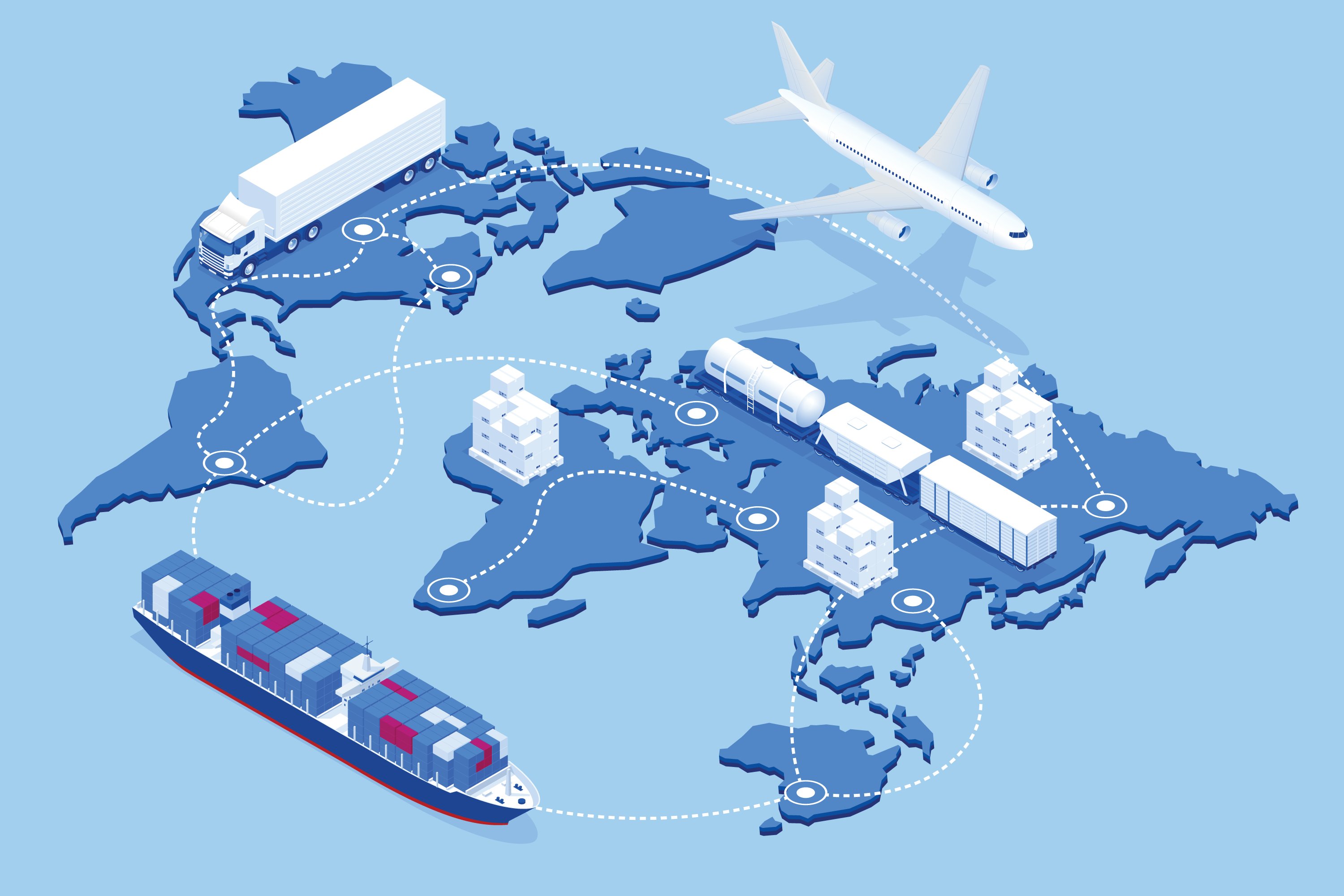Supply chain management is currently being put to the test. The corona pandemic, which has led to numerous supply bottlenecks or even supply interruptions, is certainly partly responsible for this. In the following blog post, you will learn how to set up an efficient supply chain in today's globalized world.
Globalization has led to many changes. Among other things, supply chains – especially of internationally active companies – have changed because of it. Due to the ever-increasing globalization, customers now expect fast deliveries, hence long waiting periods are often a reason for not buying a product at all. Thus, a fast and efficient supply chain is key to higher customer satisfaction and ultimately more growth. But what constitutes an efficient supply chain today and what are possible future trends?
"Glocal" supply chains
The corona pandemic has ruthlessly shown how fragile global supply chains can be. Not only have hand disinfectants and face masks suddenly became rare products: in some cases, everyday products were even missing from the shelves of local supermarkets. At times, supply chains were completely disrupted – it doesn't get more inefficient than that. In order for companies to be able to react flexibly and quickly to changes in demand in the future, they must pay more attention to local market conditions and promote production close to their customer.
Procurement logistics also plays an important role. To avoid supply bottlenecks or even interrupted supply chains, companies should source their raw materials or products from different suppliers in different regions. This is called "multiple sourcing" and ensures greater diversification in procurement. Think globally, but act locally: This results in "glocal" supply chains and they lead to increased efficiency.
Digitalization of the supply chains
Blockchain, Artificial Intelligence (AI), cloud solutions, Internet of Things (IoT) – with Industry 4.0 comes Supply Chain 4.0! Digitalization promotes the comprehensive networking of logistics and production, enhancing the whole supply chain. Today, intelligent and fully automated warehouse systems already ensure more efficient and faster supply chains. Or with the technologies of the Internet of Things (IoT), shipments can be tracked very easily and conveniently, which can additionally increase efficiency.
But the fourth industrial revolution, and with it, the digitalization of the supply chain as well, are still in its infancy. The best example of this are blockchains in the supply chain. With the help of a blockchain, all transactions within the supply chain are recorded and stored. All parties involved in the supply chain, from the raw material supplier to the end customer, have access to these pieces of information, regardless of their location. Furthermore, once information has been stored, it cannot be deleted or changed again. This ensures more transparency and consequently more security. Accordingly, a blockchain ensures lower administrative costs and at the same time increases the efficiency of the supply chain.
Companies that embrace the latest technological developments today, will benefit in the long run from more efficient, cost-effective, and less time-consuming supply chains.
Supply chain risk management
With all the upcoming digitalization, it is important not to neglect cyber security. Because cybercrime is not only a threat to the efficiency of supply chains: stolen data or information can lead to fatal reputational losses, let alone industrial espionage. But cyber security is only one part of supply chain risk management (SCRM).
The importance of such a SCRM was demonstrated in the corona pandemic. According to a German study by the Association Supply Chain Management, Procurement, and Logistics (BME), only 8 % of all companies surveyed had drawn up a plan of action for a pandemic. It is only logical that these companies were less affected by supply bottlenecks or even supply chain interruptions. Therefore, to keep an efficient supply chain intact, well-thought supply chain risk management is required to not only identify but avoid possible threats.


